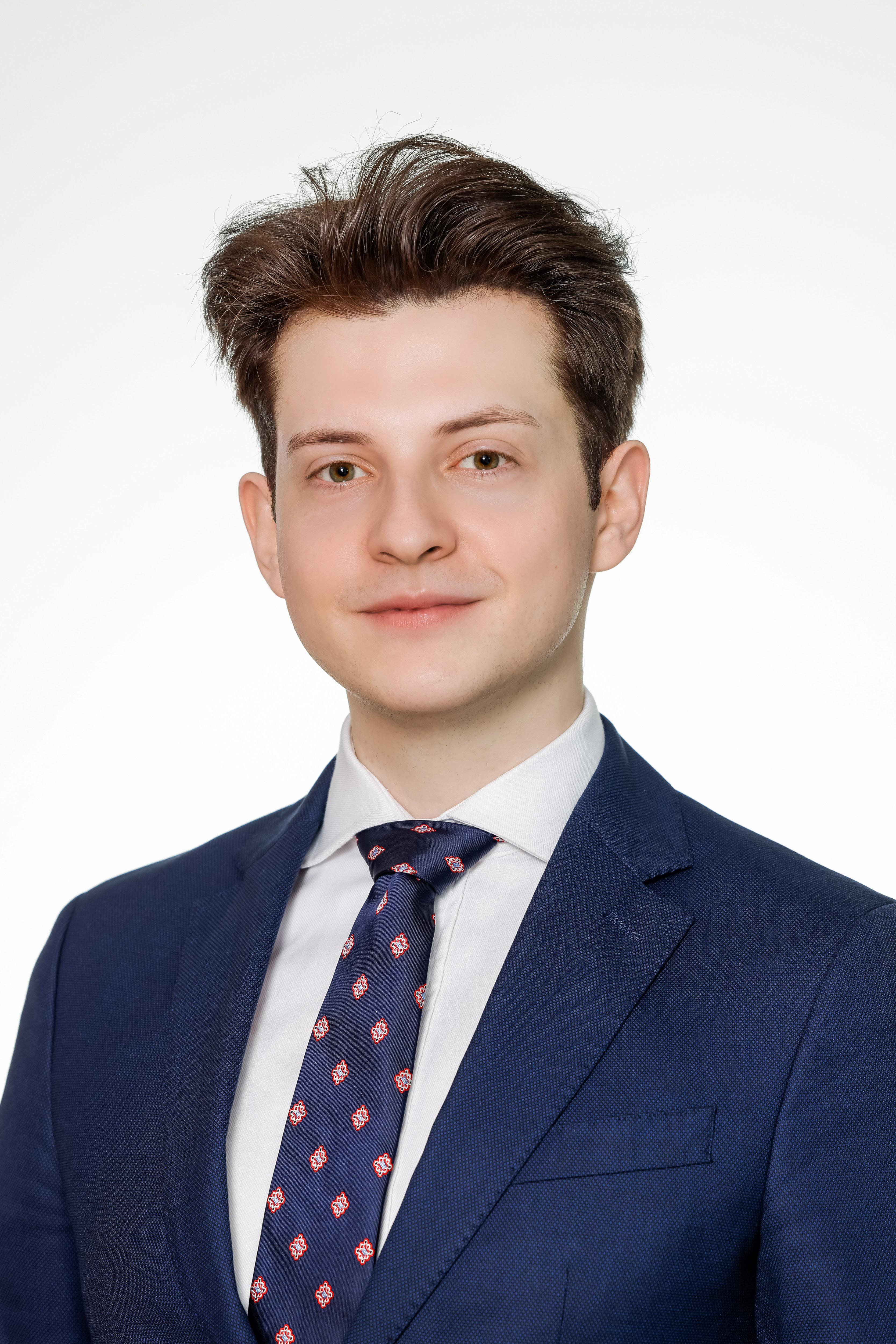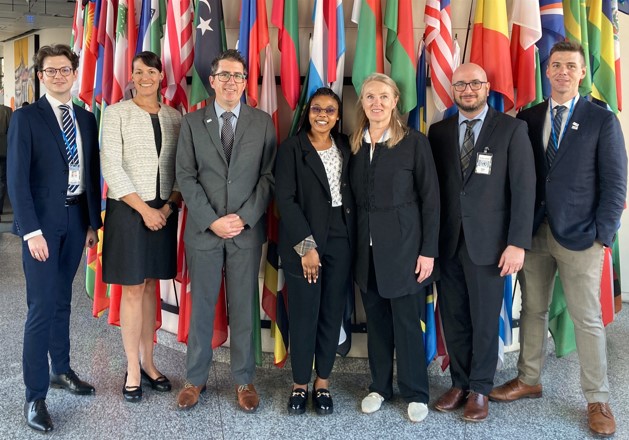
Since 2017, several States Parties to the Treaty on the Non-Proliferation of Nuclear Weapons (NPT) have been working to include a gender perspective in the Treaty’s review process. These efforts have mostly focused on increasing women’s inclusion and participation in NPT meetings and policy-making in capitals. This, however, is only part of an expressly feminist approach that a growing number of States Parties are adopting. Seven States Parties have already published feminist foreign policy frameworks and more are following suit. How are these states operationalising their feminist strategies in the non-proliferation and disarmament space? And how can feminist perspectives be championed in the NPT review process?
On 1 August 2023, the VCDNP and the Permanent Mission of Germany to the International Organisations in Vienna hosted a side event to explore these questions during the 2023 NPT Preparatory Committee (PrepCom) meeting. Executive Director Elena K. Sokova moderated the event.
Elena K. Sokova began the panel discussion by commending the progress of NPT States Parties (Canada, Chile, France, Germany, Luxembourg, Mexico, and Spain) who have formally adopted feminist foreign policies. She expressed hope that other states will follow and go beyond discussions of representation. This would help develop a model feminist foreign policy that can be translated into sustainable impacts for women and other marginalised groups in the nuclear space.
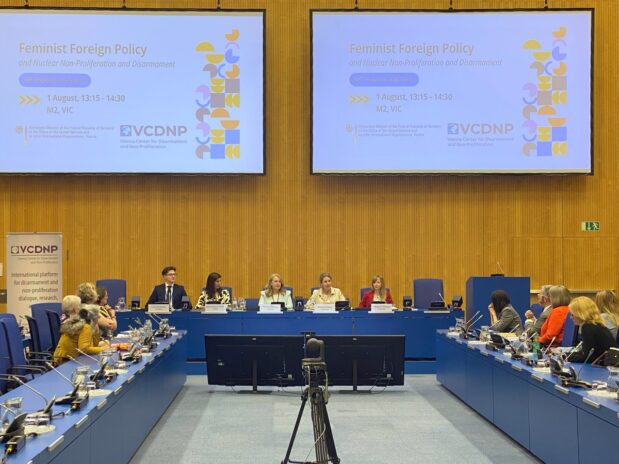
Susanne Riegraf discussed how feminist foreign policy relates to non-proliferation and disarmament specifically. She shared her personal experience negotiating the Joint Comprehensive Plan of Action (JCPOA) and the unique challenges and benefits of being a woman in the non-proliferation and disarmament sphere. She presented the 10 principles at the core of Germany’s feminist foreign policy, released in 2021, and how Germany is putting them into practice. Ms. Riegraf stressed the importance of agency and the need for a paradigm shift away from conceptualising women only as victims, for example victims of nuclear testing. Women should instead be recognised as key drivers and changemakers in nuclear policy.
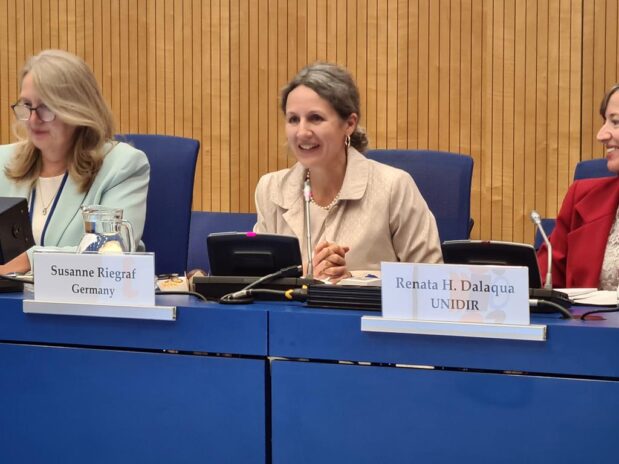
Mila Francisco Ferrada presented Chile’s feminist foreign policy, published in June 2023. For Chile, participation and inclusion of women are crucial elements of feminist foreign policy, but challenging traditional narratives around nuclear weapons and remediating their victims are equally important. Chile aims to include feminist perspectives in the NPT review process, emphasising demilitarisation, prioritising peace over security, and fostering cooperation over competition. Ms. Ferrada also informed of Chile’s designation as Gender Focal Point within the Treaty on the Prohibition of Nuclear Weapons (TPNW) and recommended a similar role be incorporated in the NPT review cycle.
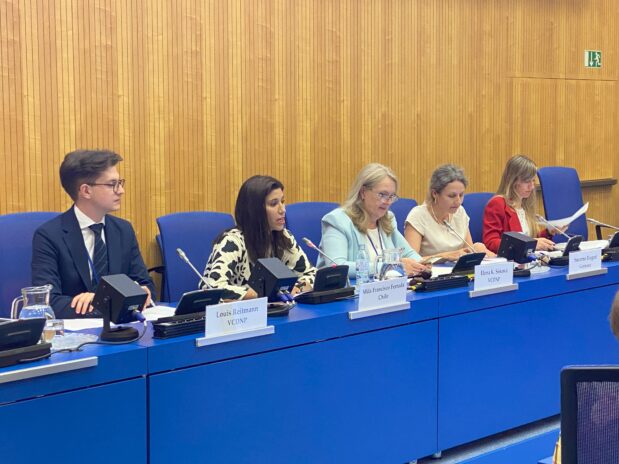
Louis Reitmann encouraged states with feminist foreign policies to operationalise them in the nuclear space by setting clear objectives and benchmarks. He stressed that a feminist approach is meant to disrupt and transform traditional power structures and challenge what supposedly is “common-sense”, e.g., that nuclear weapons deter nuclear war and stabilise geopolitics. It makes visible the harm nuclear weapons cause through their production, maintenance, and testing. A feminist approach also helps imagine the good that nuclear disarmament could deliver, e.g., by redirecting funds from nuclear arsenals to addressing the climate emergency. Mr. Reitmann encouraged states in the cross-regional Feminist Foreign Policy Group that exists within the UN context to become active in the NPT review process, socialise feminist principles among States Parties, and work feminist objectives into NPT statements and documents.
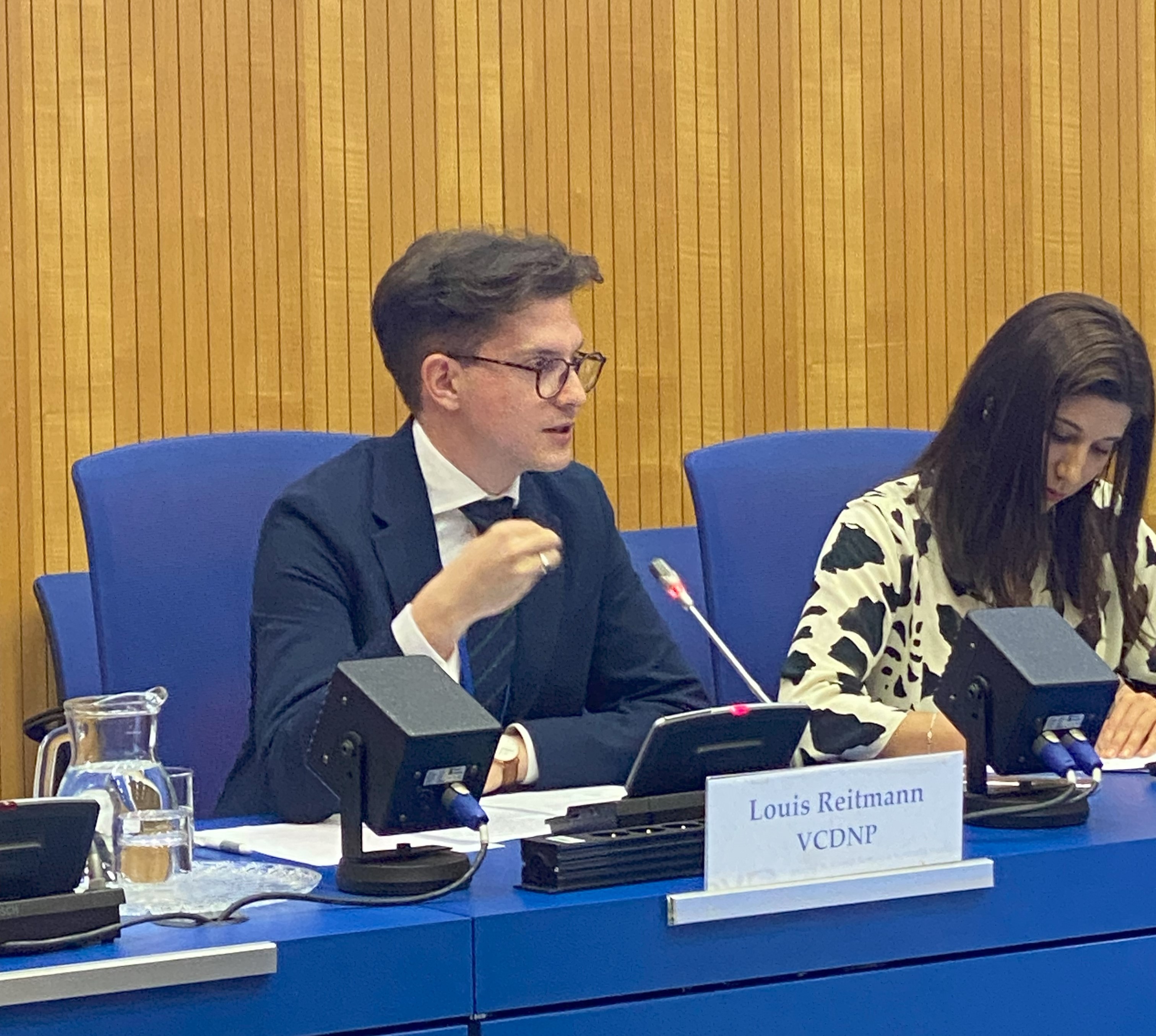
Renata Hessmann Dalaqua commended how gender equality has recently evolved from a civil society issue to established national policy in many states. However, bolder action was needed to achieve parity, she said, citing the UN Secretary General’s New Agenda for Peace: “incrementalism has not worked”. She stressed that a new way of thinking about disarmament, centring the rights and wellbeing of individuals, was necessary. The importance of strengthening engagement with other policy areas such as health, human rights, development, and the environment was paramount. Ms. Hessmann Dalaqua highlighted UNIDIR’s joint PrepCom working paper on taking forward gender mainstreaming in the NPT review process.
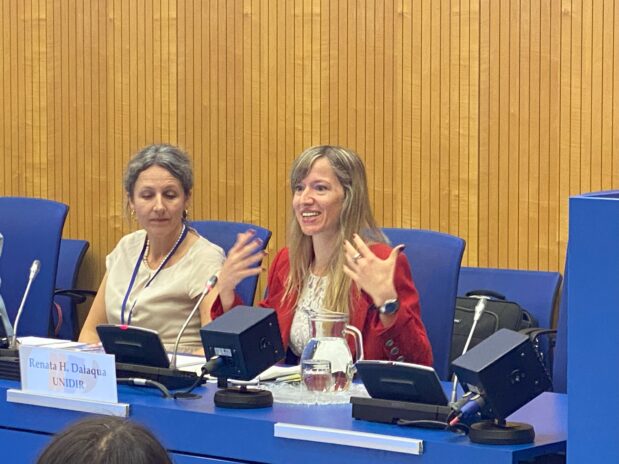
During the Q&A, the speakers answered questions on intersectionality and the added difficulty of being a woman of colour working in the field, pushback against gender mainstreaming and feminism, as well as balancing the imperatives of security policy with feminist principles. They also suggested that more countries follow Canada’s policy within the UN First Committee to only co-sponsor resolutions that include gender considerations.
The VCDNP is grateful to the German Federal Foreign Office for generously supporting and co-organising this event.

